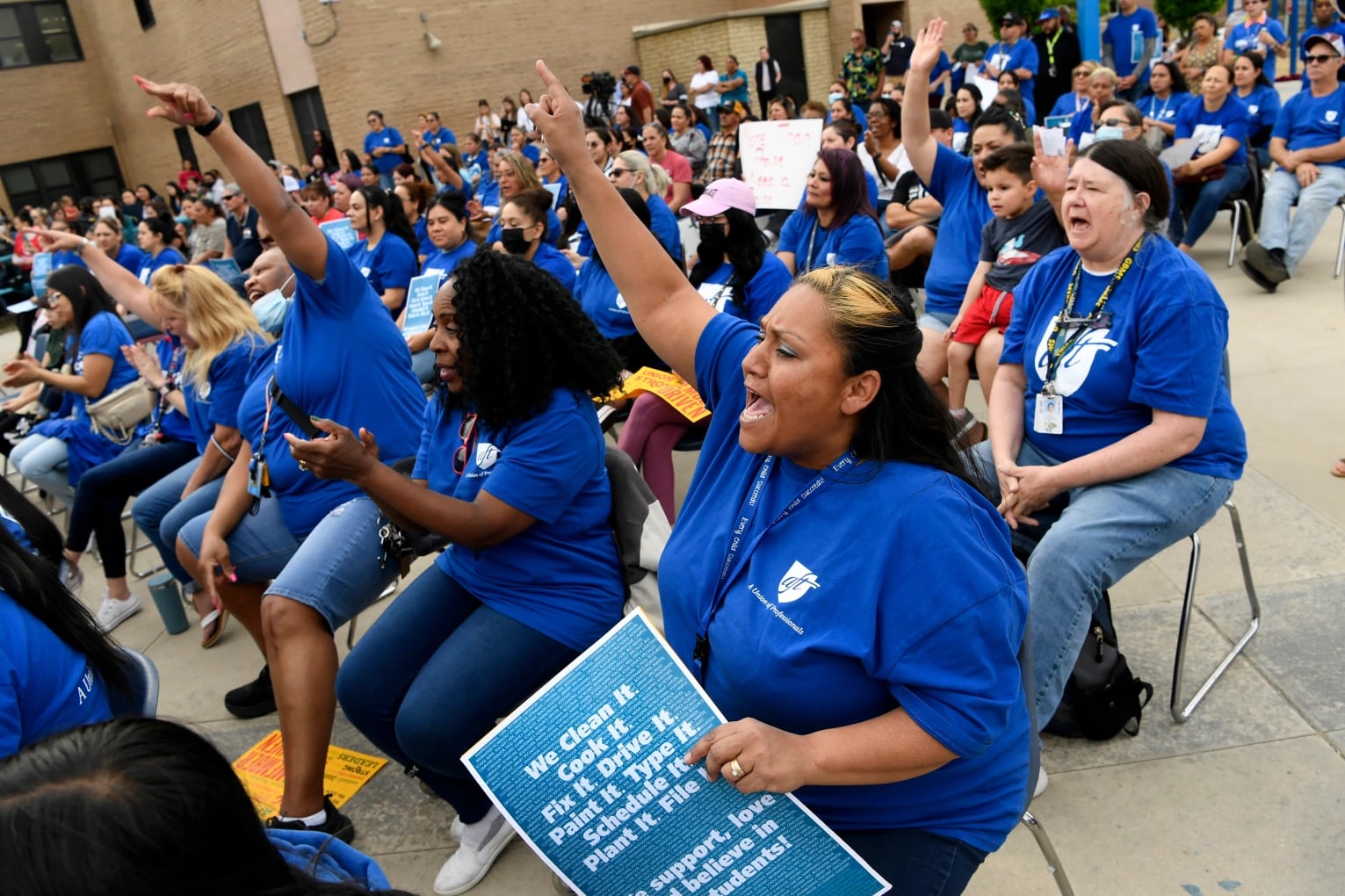Starting pay for Denver classroom aides is going up to $20 an hour, and the minimum wage for all school district employees will reach $20 an hour by 2024-25 under agreements reached between the district and four employee labor unions.
The agreements come as school districts around the state are grappling with staffing shortages and competing with rising pay in the private sector.
Many Denver Public Schools positions had offered a starting salary of $15.87, the minimum wage within the city of Denver. This spring, union leaders argued workers would need to make twice that to earn a true livable wage, given rising costs of living in the city.
In a press release, Denver Public Schools Chief of Talent Edwin Hudson said the agreements balance budgetary constraints with a commitment to the district’s employees.
Starting pay for classroom aides known as paraprofessionals will increase to $20 an hour starting Aug. 1, and to $21 by the 2024-25 school year.
Starting pay for custodians and food service workers will increase to $18 an hour and go up by $1 each year to $20 an hour in 2024-25.
Starting pay for bus drivers will increase to $24.40 an hour, for transportation maintenance workers to $22.42 an hour, and for security patrol officers to $27.50.
The pay raises are laid out in separate three-year contracts with the Amalgamated Transit Union, the Colorado Federation of School Safety Professionals, the Communications Workers of America, which represents custodians, and the Denver Federation for Paraprofessionals & Nutrition Service Employees.
Bureau Chief Erica Meltzer covers education policy and politics and oversees Chalkbeat Colorado’s education coverage. Contact Erica at emeltzer@chalkbeat.org.






